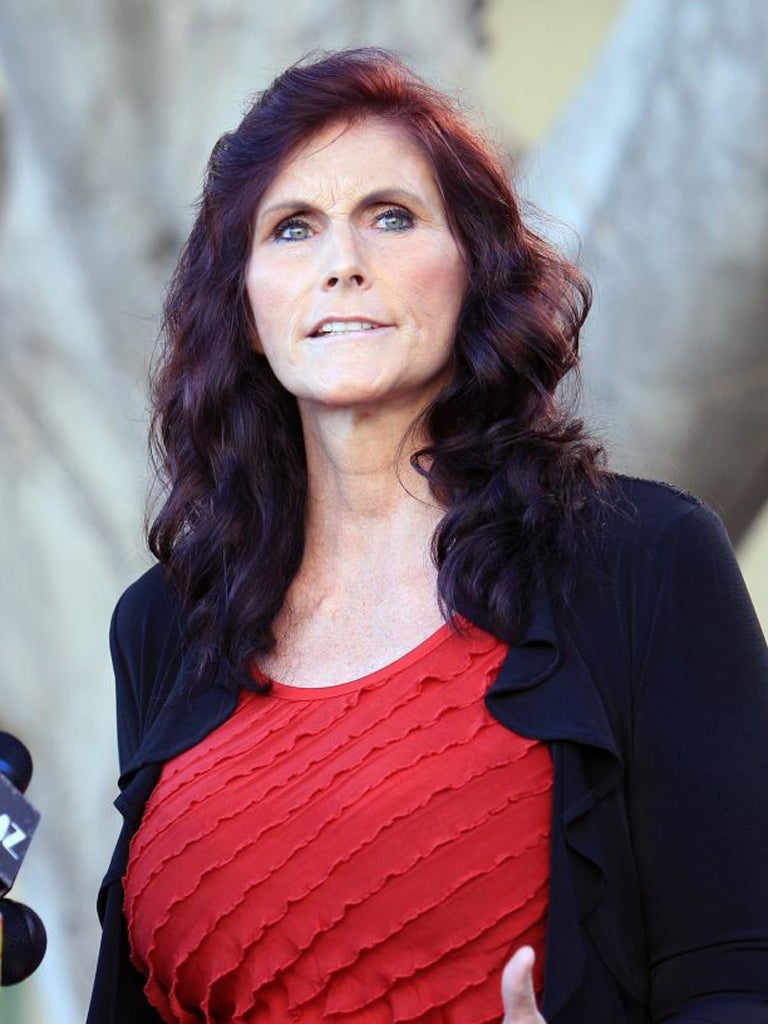California judge denies bid to remove anti-Islam film from YouTube

Your support helps us to tell the story
This election is still a dead heat, according to most polls. In a fight with such wafer-thin margins, we need reporters on the ground talking to the people Trump and Harris are courting. Your support allows us to keep sending journalists to the story.
The Independent is trusted by 27 million Americans from across the entire political spectrum every month. Unlike many other quality news outlets, we choose not to lock you out of our reporting and analysis with paywalls. But quality journalism must still be paid for.
Help us keep bring these critical stories to light. Your support makes all the difference.
A California judge denied a request by an actress today to remove an anti-Islam film from YouTube that has spawned violent protests across the Muslim world.
Actress Cindy Lee Garcia had sought to have the film removed in a suit against YouTube parent company Google Inc ( GOOG.O) and a California man linked to the film, saying she was duped into taking part and had since received death threats.
"The request for a temporary restraining order is denied. The plaintiff has not shown a likelihood to prevail on the merits," Los Angeles Superior Court Judge Luis Lavin said.
Garcia's is the first known civil lawsuit connected to the making of the video, which depicts the Prophet Mohammad as a womanizer and a fool, and which helped generate a torrent of violence across the Muslim world last week, the anniversary of the 11 September, 2001, attacks on the United States.
The violence included an attack on US diplomatic facilities in Benghazi in which the U.S. ambassador to Libya and three other Americans were killed. U.S. and other foreign embassies were also stormed in cities in Asia, Africa and the Middle East by furious Muslims.
Garcia accused a producer of the movie, whom she identified as Nakoula Basseley Nakoula using the alias Sam Bacile, of duping her into appearing in a "hateful" film that she had been led to believe was a simple desert adventure movie.
"There was no mention of 'Mohammed' during filming or on set. There were no references made to religion nor was there any sexual content of which Ms. Garcia was aware," the lawsuit said.
For many Muslims, any depiction of the prophet is blasphemous. Caricatures deemed insulting in the past have provoked protests and drawn condemnation from officials, preachers, ordinary Muslims and many Christians.
Garcia, who said she had received death threats after the video was posted on YouTube, has accused Nakoula of fraud and slander.
Garcia also named Google and its YouTube unit as defendants in the suit she filed on Wednesday. She said her right to privacy had been violated and her life endangered, among other allegations.
An attorney for Google said the rights of an actor do not protect that person from how a film is perceived.
"If we viewed it that way we'd say that Arnold Schwarzenegger as a cyborg in 'Terminator' was a factual statement about Arnold Schwarzenegger," lawyer Timothy Alger said.
Reuters
Subscribe to Independent Premium to bookmark this article
Want to bookmark your favourite articles and stories to read or reference later? Start your Independent Premium subscription today.
Join our commenting forum
Join thought-provoking conversations, follow other Independent readers and see their replies
Comments